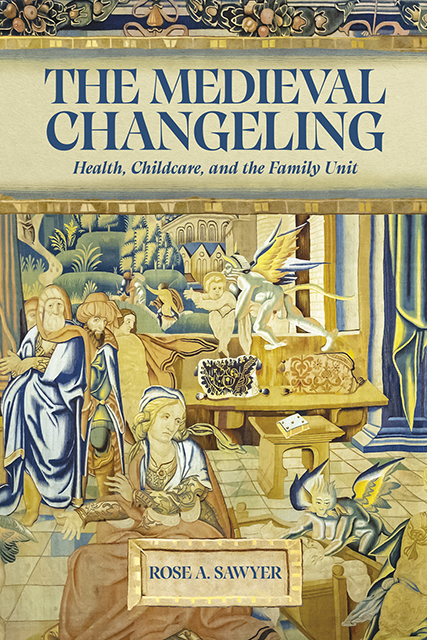Conclusion
Published online by Cambridge University Press: 10 June 2023
Summary
The experience of childhood is one that both unites and divides us. Every one of us has been a child, but our experience and understanding of childhood are shaped by our individual circumstances, as well as the broader context in which we grew up. If we are to build up a more complete and nuanced understanding of medieval culture, the study of both the experiences of individual medieval children and wider medieval ideas about childhood is essential. However, as my study of changelings has shown, the medieval discourse that constructed their ideas about childhood was not restricted to discussions of fully human children; it also incorporated the strange, uncanny, or supernatural child. These figures could be used by medieval people in a way that allowed for the articulation of a wider range of anxieties or concerns than in depictions or discussions of human children. For instance, through depicting a family plagued by a changeling, one can, consciously or unconsciously, grapple with fears about raising a non-normative child. While these narratives may not have been universally applied, incorporating these marginal attitudes into our concept of medieval childhood is vital if we are to arrive at a comprehensive picture of medieval childhood.
Philippe Ariès’ controversial (and often misconstrued) claim that ‘in medieval society the idea of childhood did not exist’ sparked a historiographical debate about medieval childhood that has, up until recently, been characterised by stark and polarised positions. Scholars like Lawrence Stone, Edward Shorter, and Lloyd DeMause envisaged a bleak picture of a Middle Ages where children were routinely abused and abandoned. Traditionally, it would be assumed that the study of changelings would naturally fall on this side of the fence, demonstrating a mindlessly brutal culture that routinely cast out those children that did not conform to normative ideas about physical and mental health. However, based on my research, the medieval corpus of child substitution sources points very firmly and directly away from this stereotypical view. By this I do not mean that they confirm the ‘panhistorical and essentialist’ view of childhood that scholars like Nicholas Orme, Linda Pollock, and Shulamith Shahar have been accused of peddling. Rather, the study of medieval changelings reveals a society that was concerned for the well-being of children generally, eager to provide guidance on their proper care, and quick to condemn those adults that neglected their charges.
- Type
- Chapter
- Information
- The Medieval ChangelingHealth, Childcare, and the Family Unit, pp. 141 - 146Publisher: Boydell & BrewerPrint publication year: 2023



